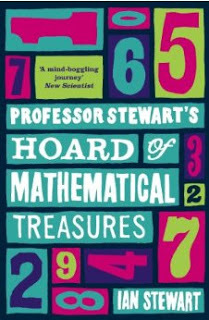Can language trump logic?
 In his book
Professor Stewart's Horde of Mathematical Treasures
, Ian Stewart describes a number of incidents of mathematicians struggling with ordinary life. In one we find Abraham Fraenkel, a mathematics professor 'of German origin' getting on a bus in Tel Aviv that was still in the bus station 5 minutes after it should have left. According to Stewart, Fraenkel waved a timetable at the driver, who replied 'What are you - a German or a professor?' to which, he tells us Fraenkel replied 'Do you mean the inclusive or, or the exclusive or?'
In his book
Professor Stewart's Horde of Mathematical Treasures
, Ian Stewart describes a number of incidents of mathematicians struggling with ordinary life. In one we find Abraham Fraenkel, a mathematics professor 'of German origin' getting on a bus in Tel Aviv that was still in the bus station 5 minutes after it should have left. According to Stewart, Fraenkel waved a timetable at the driver, who replied 'What are you - a German or a professor?' to which, he tells us Fraenkel replied 'Do you mean the inclusive or, or the exclusive or?'Interestingly, in English at least (this may not apply in other languages), the professor's snippy logic was beaten by linguistics, as his question was not necessary.
Fraenkel's question distinguished the exclusive or (where something has to be one thing or the other but can't be both) from the inclusive (where it can be either or both). And had he received the question from the bus driver in writing, with a slightly different wording, he would have been justified in asking the question. 'Are you a German or a professor?' written down could be inclusive or exclusive. However there was that opening word. It would have been clearer had the driver said 'Which are you' - this would force the exclusive. But even 'What are you' implies the exclusive.
However, the question wasn't written down - and interestingly, in spoken English we distinguish the inclusive and exclusive or by inflection. So had the driver said 'Are you a German or a professor?' and meant it to be inclusive he would have kept the word 'professor' at a fairly balanced or a rising pitch. If he had meant it to be exclusive, he would have said 'professor' with a falling pitch.
It's not really language trumping logic, as I asked in the title, but rather the interesting point that a phrase, particularly a spoken phrase, can contain more information than that of the basic interpretation applied by Abraham Fraenkel.
Published on August 30, 2016 01:08
No comments have been added yet.



